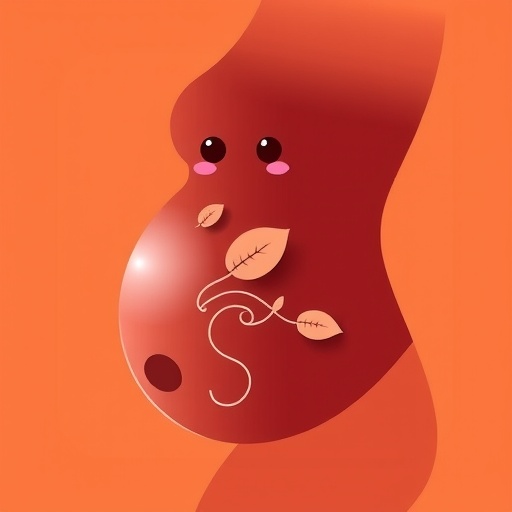In the ever-evolving field of reproductive medicine, the intersection of in vitro fertilization (IVF) and pregnancy outcomes has sparked considerable research interest. Recent contributions to this discourse, especially the findings presented by Bentov and Schenker in their recent study, shine a promising light on the intricacies of assisted reproductive technology. This landmark paper explores not only the successes associated with IVF but also the myriad challenges that persist, as well as the critical unanswered questions that surround this prominent medical practice.
The rise of IVF technologies has dramatically altered the landscape of reproductive health. Since the birth of the first “test-tube baby” in 1978, advancements in reproductive endocrinology and embryology have allowed countless individuals and couples to realize their dreams of parenthood. However, despite the apparent triumphs, the journey through IVF is not always straightforward, and many individuals face various obstacles that can hinder success. Understanding these challenges is crucial in helping both patients and practitioners navigate this complex field.
The authors of the study emphasize the multifaceted nature of pregnancy outcomes following IVF treatments. While many patients do experience successful pregnancies, a significant proportion still encounter setbacks. Factors such as age, underlying health conditions, and genetic predispositions play pivotal roles in determining these outcomes. As researchers dig deeper into these parameters, a more nuanced understanding of how they interact with IVF success rates is emerging, which may help in tailoring treatment strategies to individual needs.
One of the most exciting developments highlighted in this research is the exploration of biomarkers that could predict IVF success. Biomarkers—biological indicators that can be measured to assess health conditions—offer immense potential for personalizing treatment plans. By identifying specific traits associated with successful pregnancies, clinicians may soon be able to provide more informed recommendations to prospective parents. This could significantly enhance not only the efficiency of IVF protocols but also the emotional and financial investment made by those seeking to conceive.
Nevertheless, the journey through IVF remains fraught with uncertainty. Many questions linger regarding the optimal timing for embryo transfer, the influence of endometrial receptivity, and the effect of varied stimulation protocols on embryo quality. The authors call for more extensive clinical trials and longitudinal studies to sift through these uncertainties. As researchers work to better understand these dynamics, they are urged to consider patient quality of life as an integral component of research outcomes, merging both medical and emotional aspects of the IVF journey.
A significant area of contention comes from the ethical implications surrounding assisted reproductive technologies. Debates persist regarding embryo selection, the disposal of embryos, and the overall accessibility of IVF treatments. As these technologies become increasingly available and refined, society grapples with the moral responsibilities that accompany them. In response, the authors advocate for a comprehensive framework to guide ethical decision-making and promote equitable access to IVF services.
Despite its drawbacks, there are inherent rewards associated with IVF that continue to drive its popularity. Success stories flourish, demonstrating the profound impact of IVF on many families. The emotional narratives surrounding these journeys often intertwine with the clinical data, painting a holistic picture of the IVF experience. It is this blend of science and humanity that resonates deeply with the public and draws attention to ongoing innovation in fertility treatments.
Furthermore, the emergence of new technologies such as genetic screening and embryo freezing techniques opens a new frontier in IVF. Techniques like preimplantation genetic testing (PGT) have made it possible to identify genetic disorders in embryos before implantation, allowing for more informed decisions on which embryos to transfer. This advancement not only aids in preventing genetic diseases but also enhances the chances of healthy pregnancies, thereby increasing the overall success rates of IVF.
Conversely, the rise of demand for IVF treatments has sparked essential discussions about the implications of commercialization in reproductive medicine. As a growing number of fertility clinics enter the market, concerns about quality control, standardization of practices, and ethical marketing arise. Patients are encouraged to conduct thorough research and seek reputable clinics with proven track records to avoid potential pitfalls associated with subpar services.
In conclusion, while the paper by Bentov and Schenker elucidates significant progress in the field, it also highlights the importance of recognizing the gaps that require further exploration. The authors underscore the need for a collaborative effort among clinicians, researchers, and policymakers to foster an environment conducive to both technological advancement and compassionate care. This collaborative approach is essential for bridging the existing gaps and enhancing the IVF experience for future generations.
As the field continues to evolve, it beckons the promise of new discoveries and breakthroughs. Though challenges abound, the commitment to unraveling the complexities of IVF and pregnancy outcomes remains strong. As science propels the discourse forward, it is evident that a multifaceted approach encompassing both rigorous research and ethical considerations is essential to steering the future of reproductive health.
The anticipated future of IVF is filled with hope. For all who dream of parenthood, the advancements in technology, coupled with ongoing research, point to a world where these dreams become increasingly attainable. As society stands on the cusp of new successes and improved methodologies in reproductive medicine, one can only hope that a deeper understanding will unfold, transforming the landscape of IVF and enriching the lives of countless families.
Subject of Research: IVF and pregnancy outcomes
Article Title: IVF and pregnancy outcomes: the triumphs, challenges, and unanswered questions
Article References:
Bentov, Y., Schenker, J. IVF and pregnancy outcomes: the triumphs, challenges, and unanswered questions.
J Ovarian Res 18, 228 (2025). https://doi.org/10.1186/s13048-025-01692-5
Image Credits: AI Generated
DOI: 10.1186/s13048-025-01692-5
Keywords: IVF, pregnancy outcomes, reproductive medicine, biomarker, preimplantation genetic testing, assisted reproductive technology, ethical considerations, embryo transfer.




